当夸耀主的作为 Boast in the Lord
哥林多前书 1 Cor 1:26–2:5
Remember these points
I put these points at the top of my sermon-prep template to remind myself every week:
- Show that main point of passage relates to Jesus and his saving work
- (1 Cor 1:18) A truly gospel-centred message will not be acceptable in a synagogue or mosque
- Did I proclaim the gospel as the headline news of the sermon, rather than as a “by the way…”?
- Unbelievers are called to repent, believe, and be saved
- Believers are encouraged to abandon their old self, renew their minds, put on the new self in Christ
- Preach simple sermons, so that God’s people can see Christ more clearly and love him more dearly
News
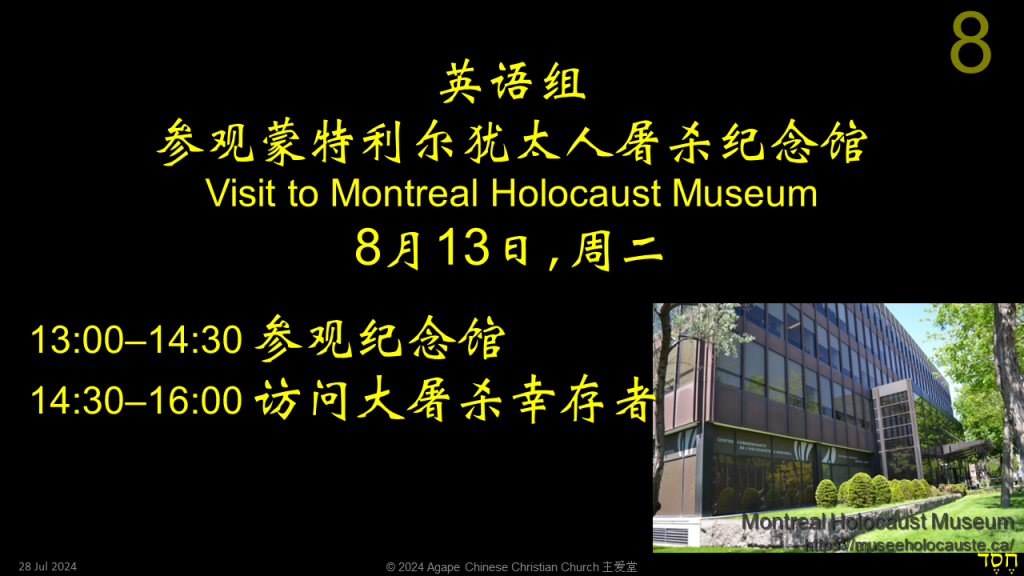
Review
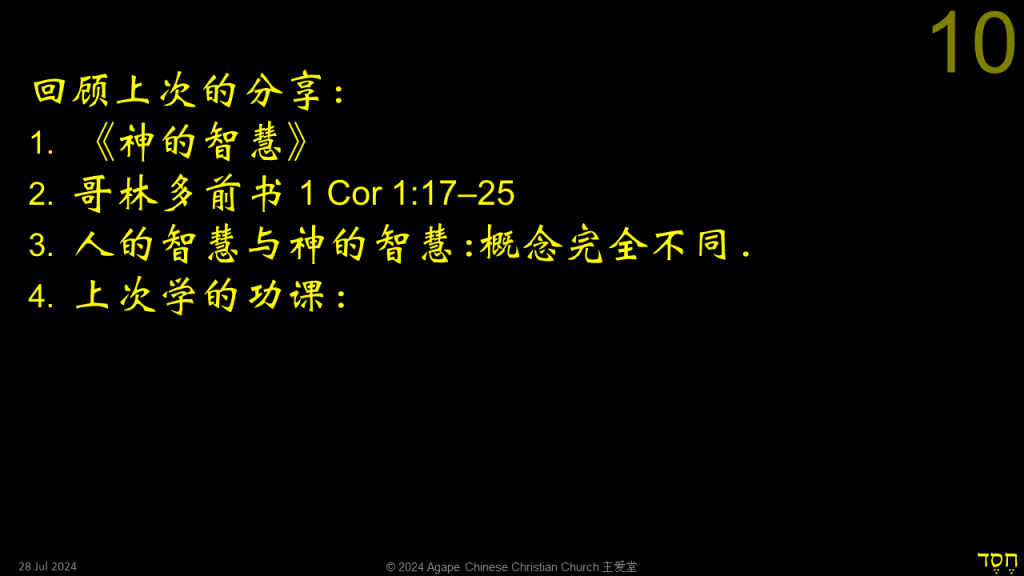
Review last sermon on 1 Corinthians (at the Retreat, 240623):
- Title was “God’s Wisdom”
- Passage: 1 Cor 1:17–25
- Human wisdom and God’s wisdom: Entirely different concepts
- Lessons from last time:
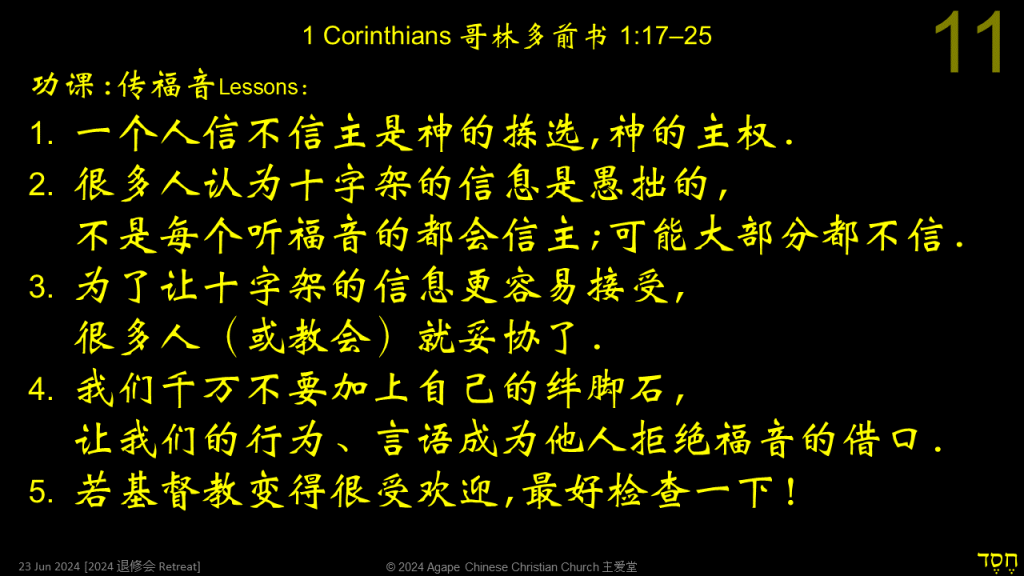
Lessons:
- Whether or not someone believes in God, it’s up to God’s sovereignty.
- Many think the message of the cross is really stupid, it’s not everyone that hears the gospel will believe.
We can be sure the majority will not believe. - In order to make the gospel message easier for others to accept,
many people (including churches) made compromises. - If Christianity becomes very popular, we need to check to make sure what’s happening!
Hook
Do you know what is a sophist?
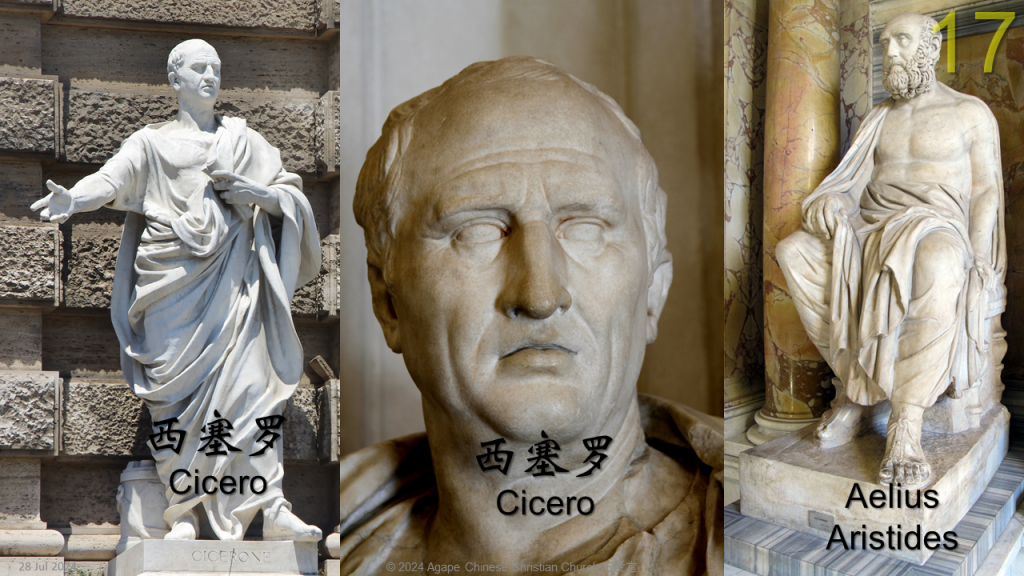
Cicero, a famous Roman sophist and philosopher, etc., around 186BC–46BC. Wikipedia
Another sophist is Aelius Aristides, AD 117–181, Greek sophist, orator, etc.
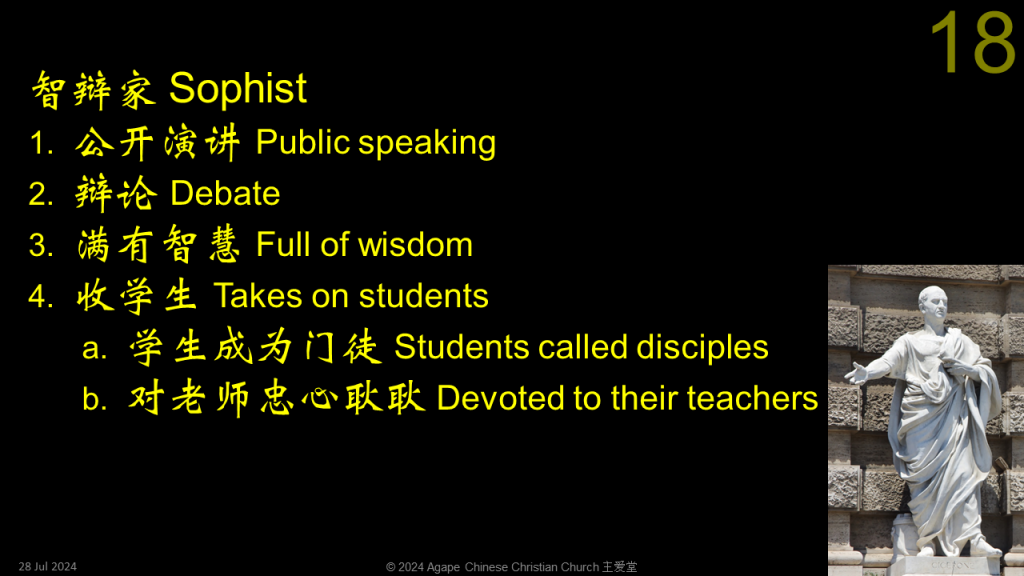
Passage

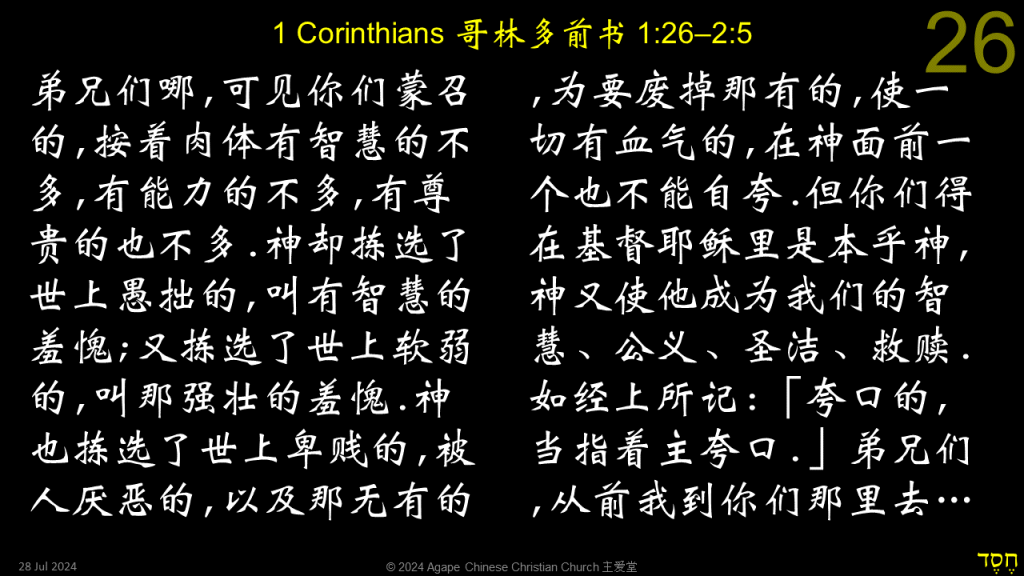
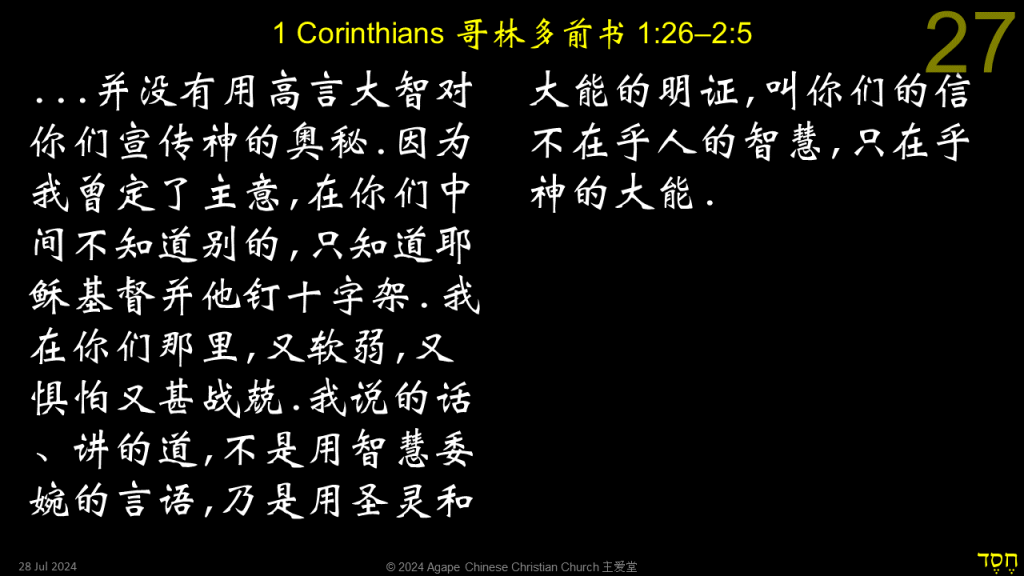
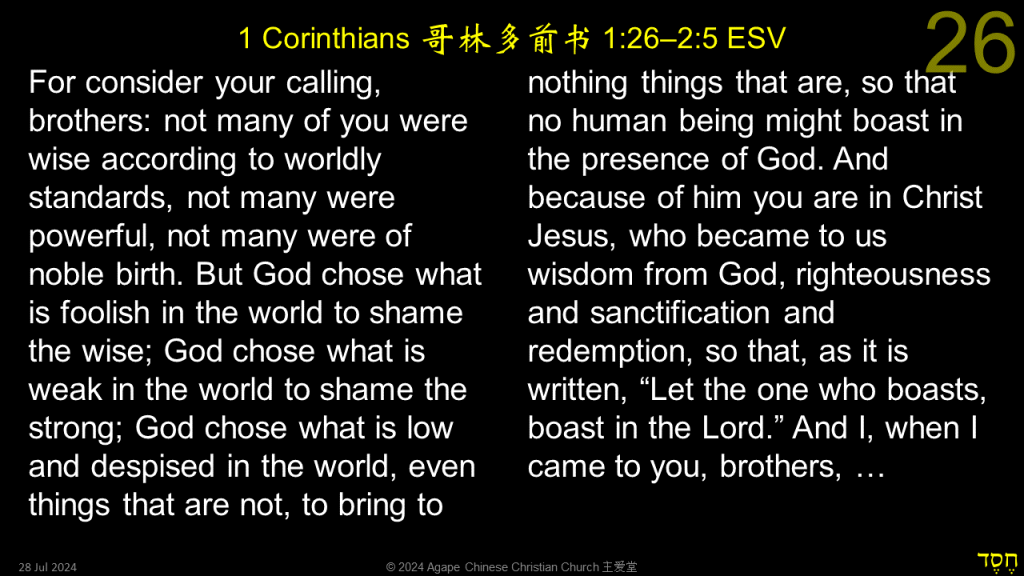
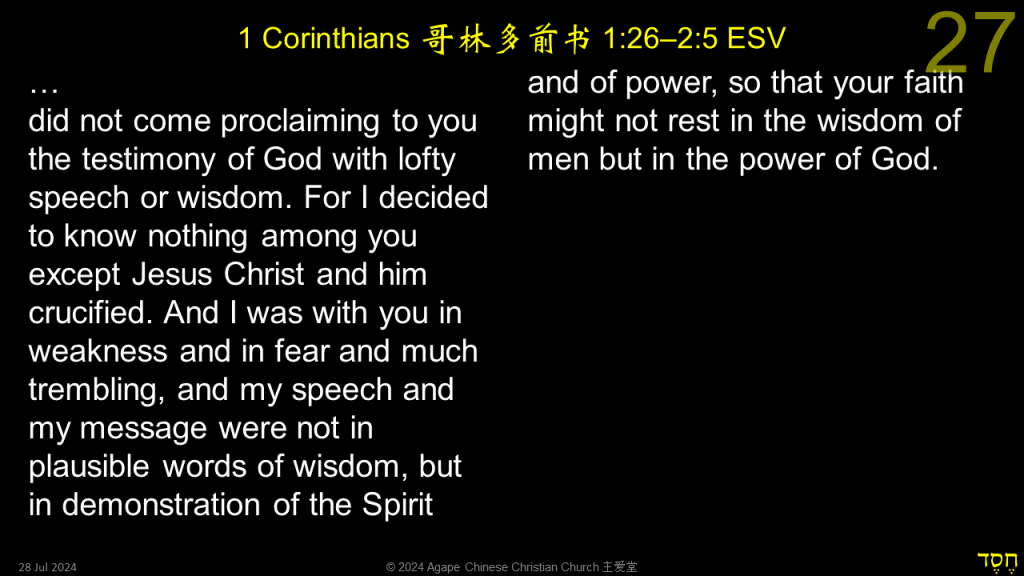
Outline
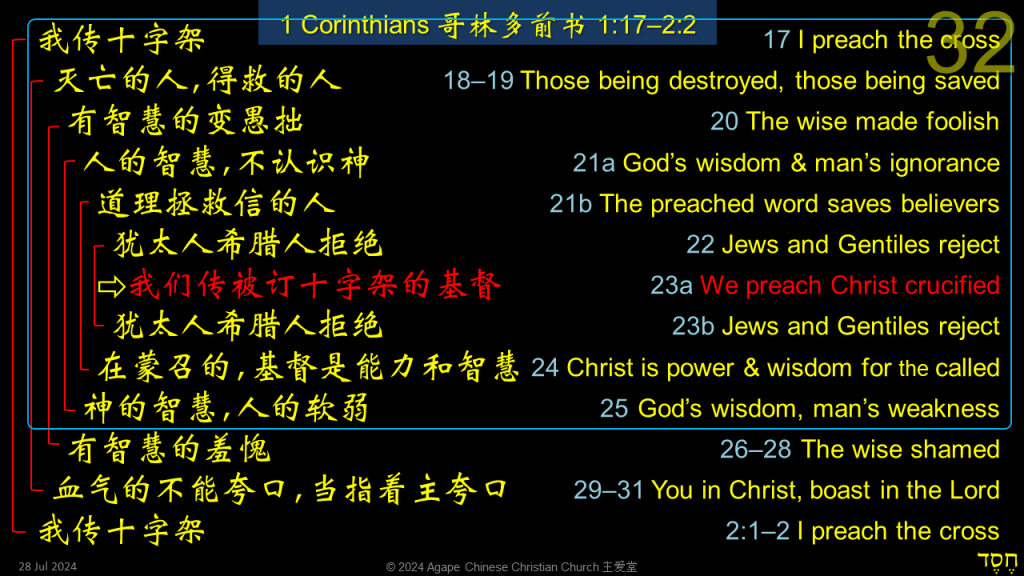
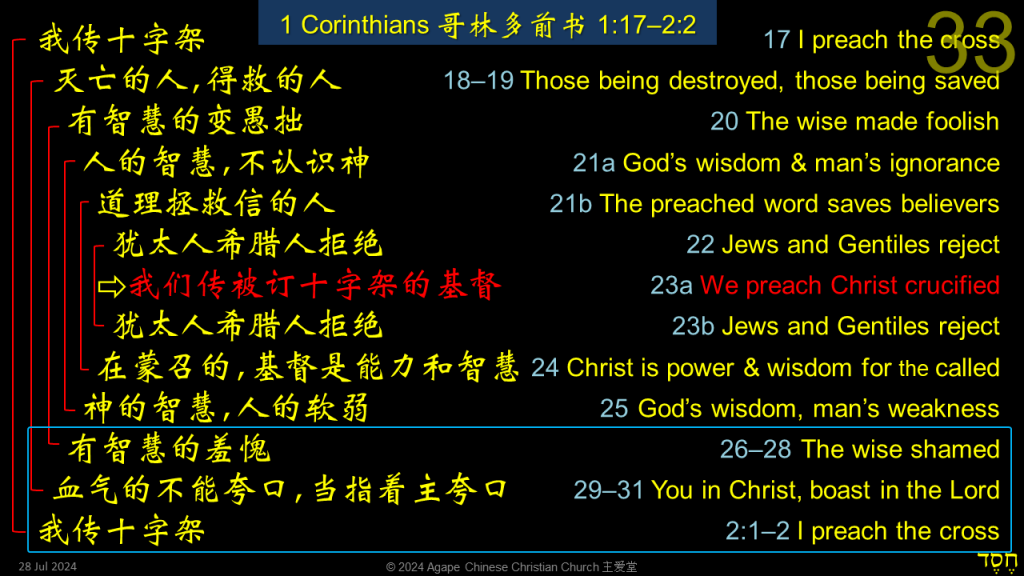
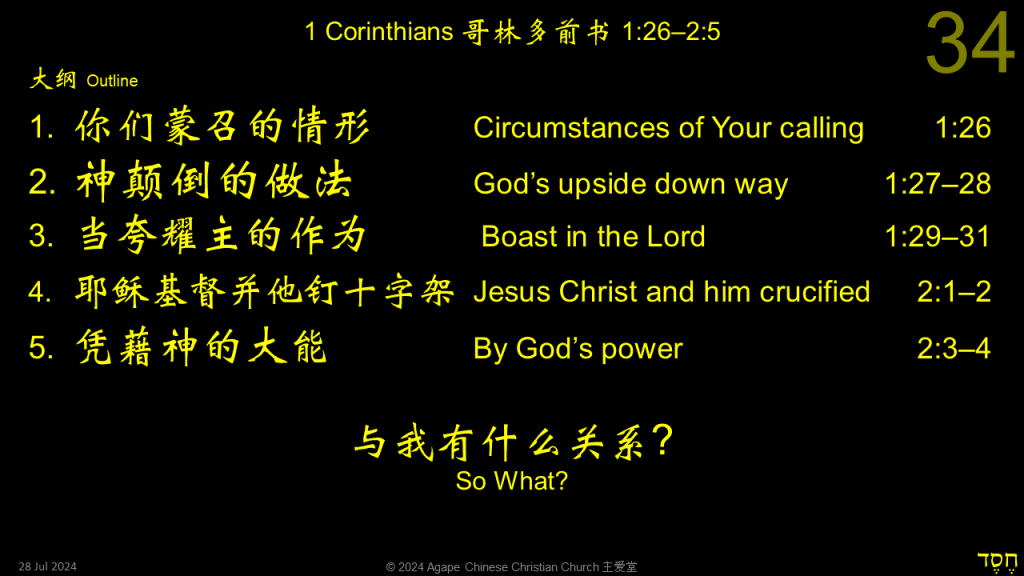
Section 1 你们蒙召 Circumstances of your calling 1:26
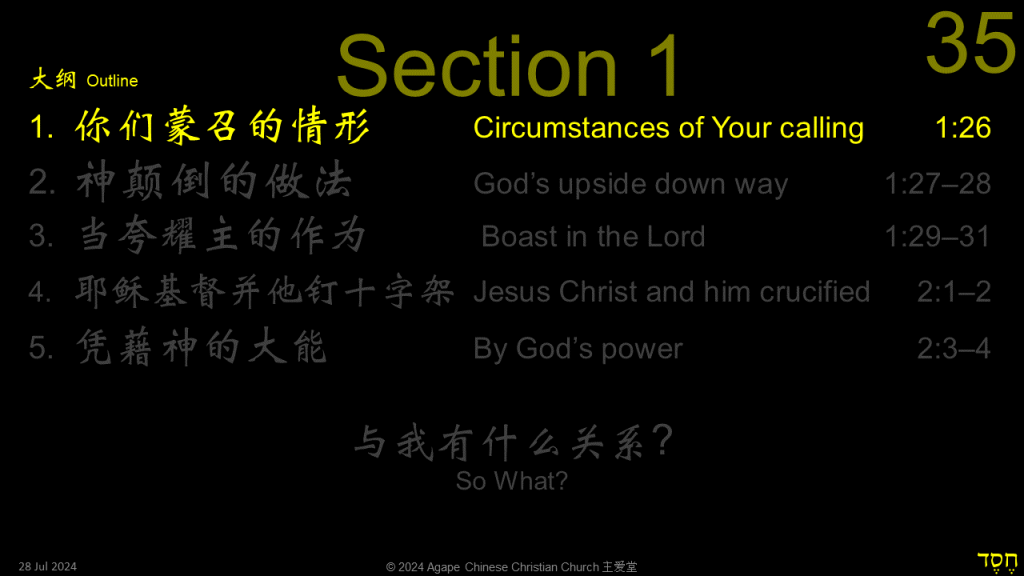
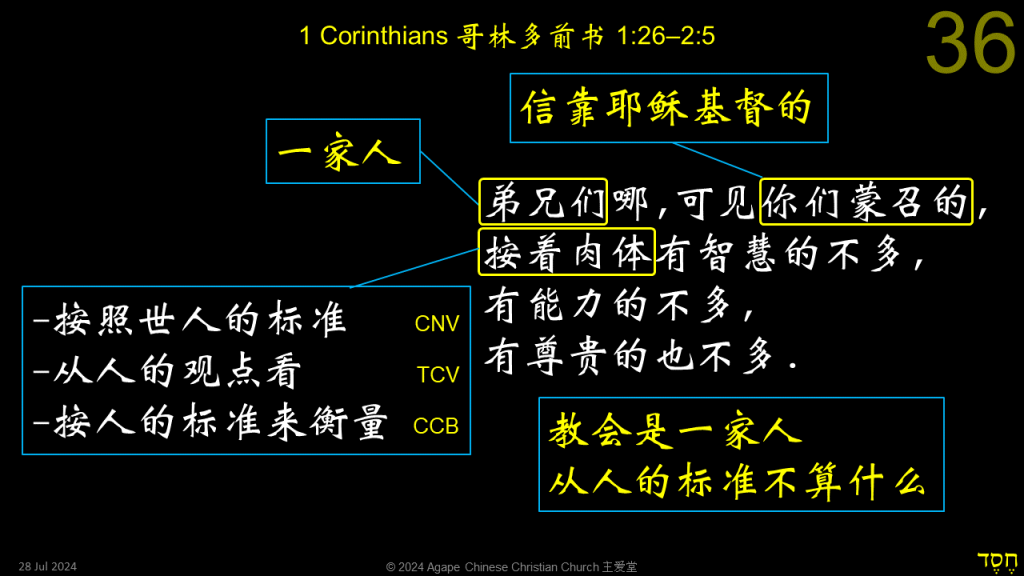
Paul calls them brothers, avoiding the use of teacher/student relationship, or patron/client relationship.
The church is one family, with all the good and bad points of any family.
In the world’s eyes, the church doesn’t amount to much.
Lessons
Section 2 神颠倒的做法 God’s upside down way 1:27–28
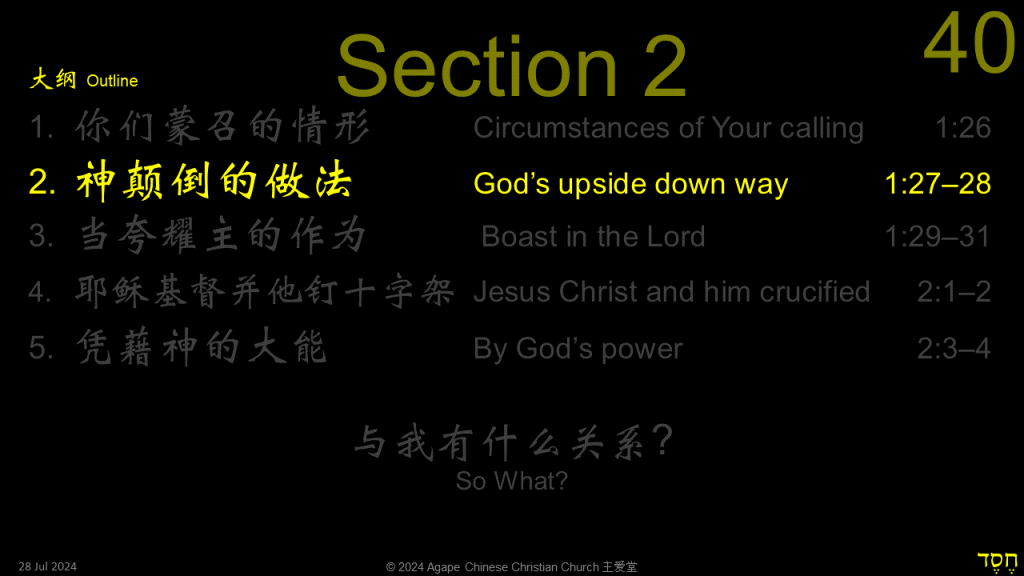
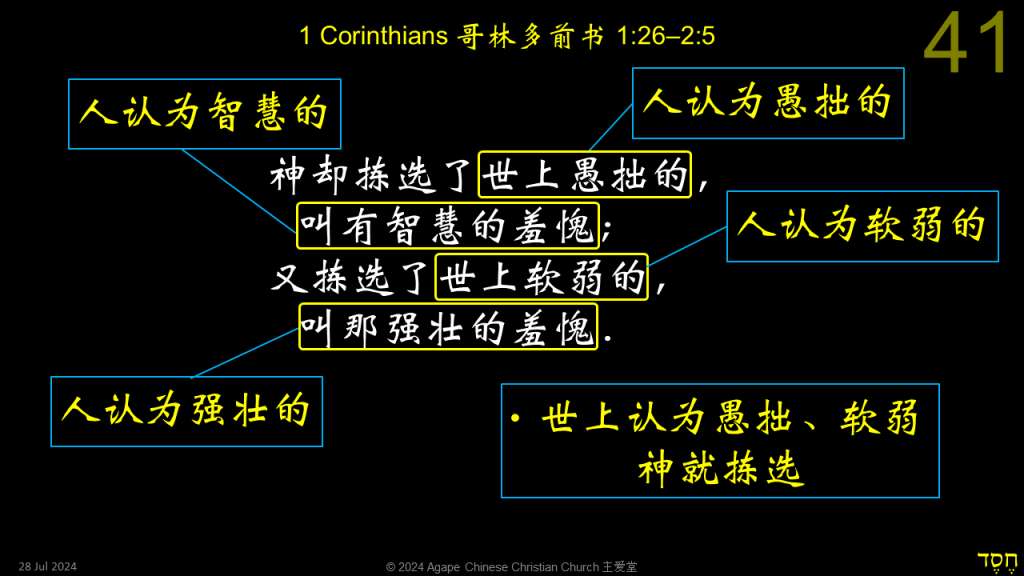
God chose what’s considered foolish in this world to shame what humans consider wisdom.
And God chose what’s weak in this world to shame the strong.
God seems to use the things that this world looks down on: the foolish, the powerless, the weak.
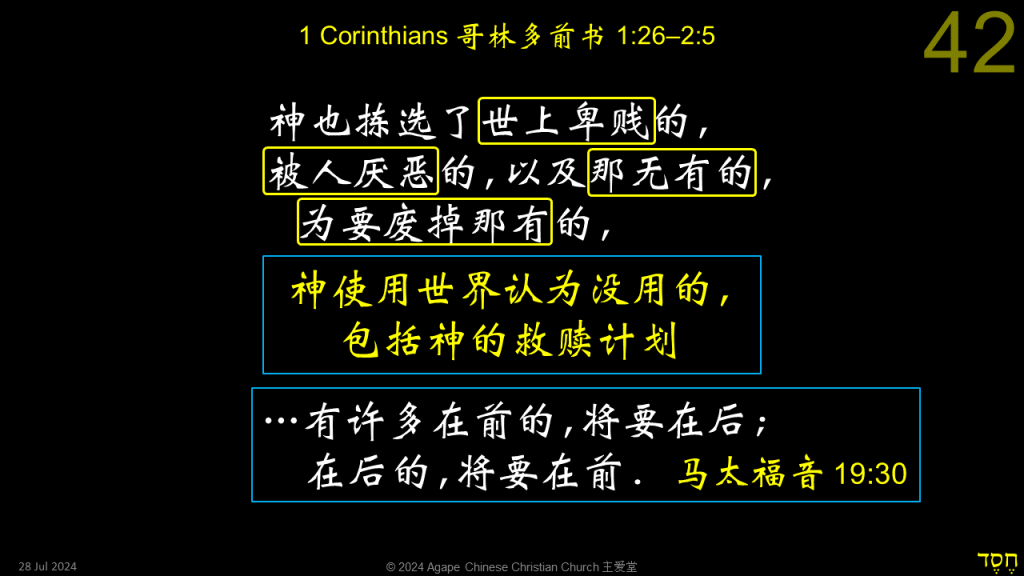
Same way, God uses what humans think of as useless to work out his salvation plan.
This is the upside down world of the gospel, as Jesus said in Matt 19:30.
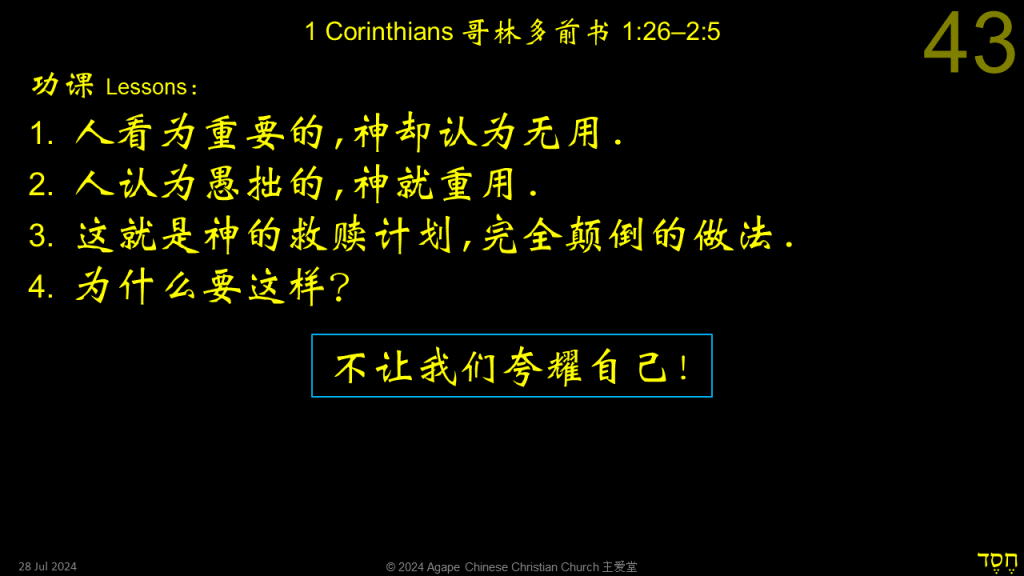
Lessons
- What humans consider important, God sees as useless.
- What humans see as foolish, God will make good use of it.
- This is the God’s salvation plan, a plan that seems completely upside down.
- Why do it this way?
So that we won’t be able to boast!
Section 3 当夸耀主的作为 Boast in the Lord 1:29–31
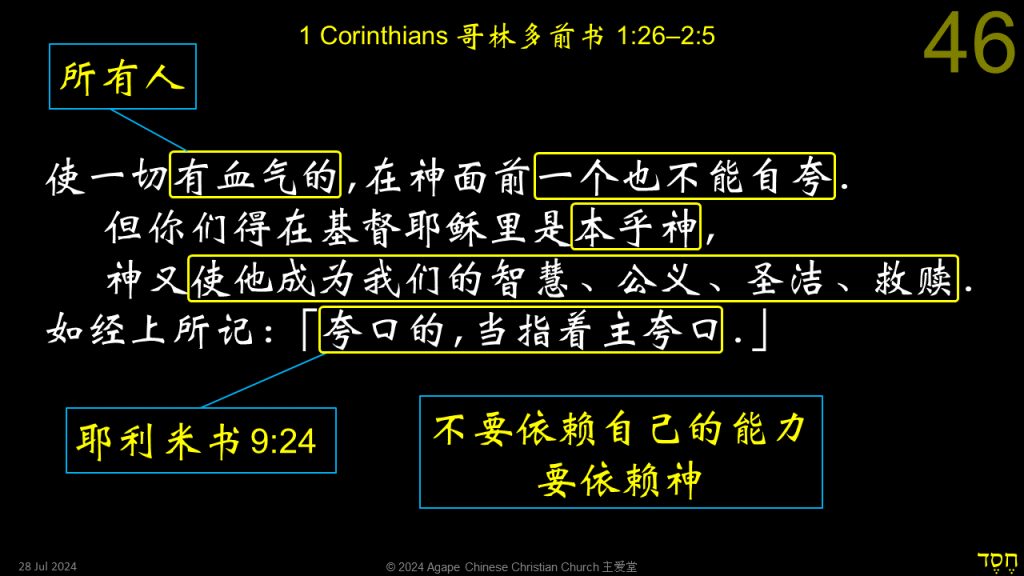
No one can boast, because we really have nothing to boast about.
Don’t depend on our own abilities, we need to trust God entirely.
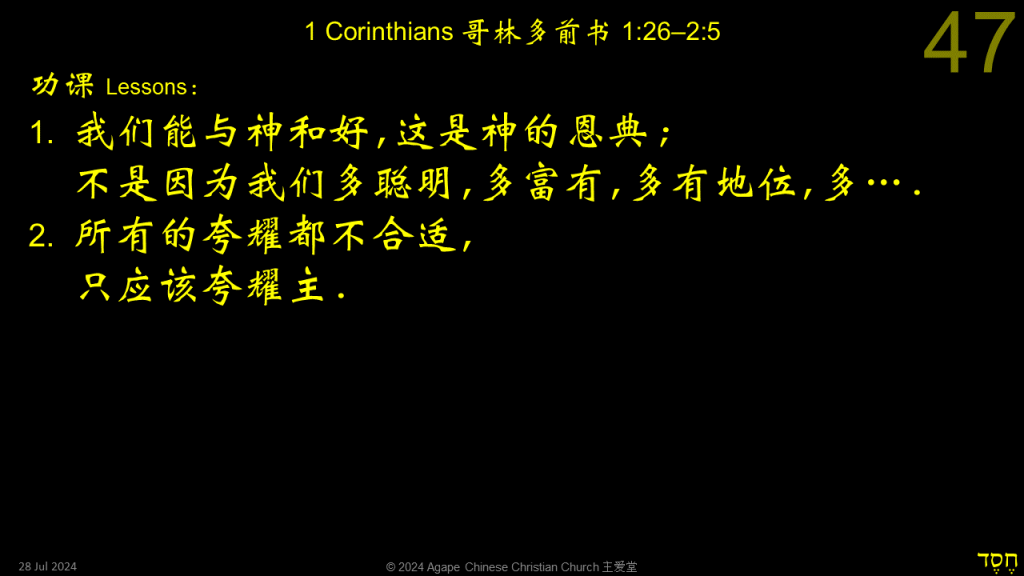
Lessons
- We can be right with God (because of faith in Jesus Christ). This is God’s grace;
not because we’re smart, or rich, or powerful, or famous, or… - Any boasting is inappropriate,
we can only boast in the Lord and what he has done.
Section 4 耶稣基督并他钉十字架 Jesus Christ and him crucified 2:1–2
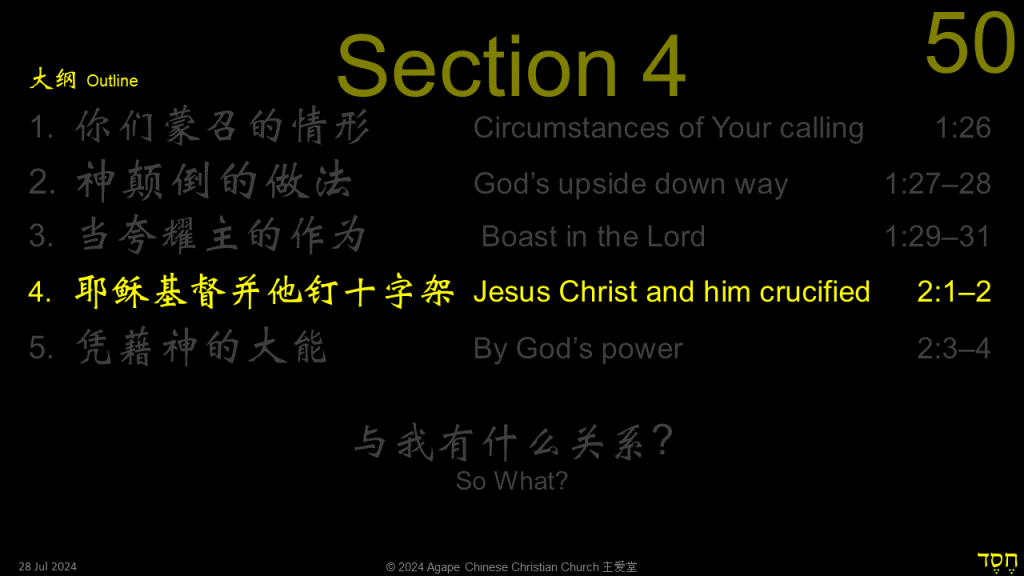

This statement, “did not come proclaiming to you the testimony of God with lofty speech or wisdom” is aimed at the sophists. Paul doesn’t want to be like a sophist.
The Corinthians has imported Greek culture and philosophy into the church.
Paul purposely distances himself from any such behaviour.
In fact, he purposely puts down the sophists, and scolds the Corinthian church for behaving like sophist disciples.
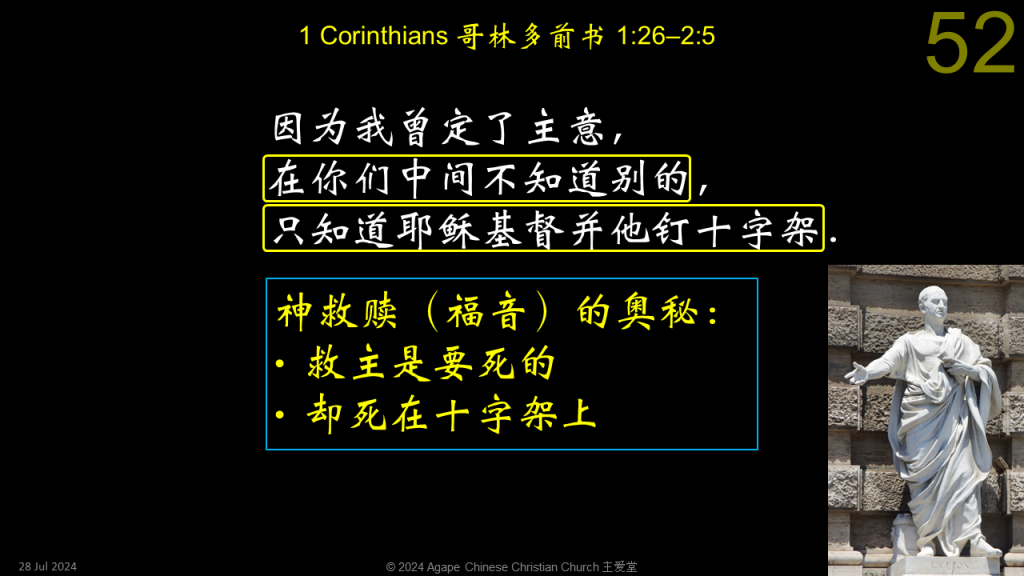
Paul has no special technique (like the sophists), no appealing to their emotions, no flowery speech;
all he has is the simple message: the death of Jesus, and death on the cross at that!
Section 5 凭藉神的大能 By God’s power 2:3–4
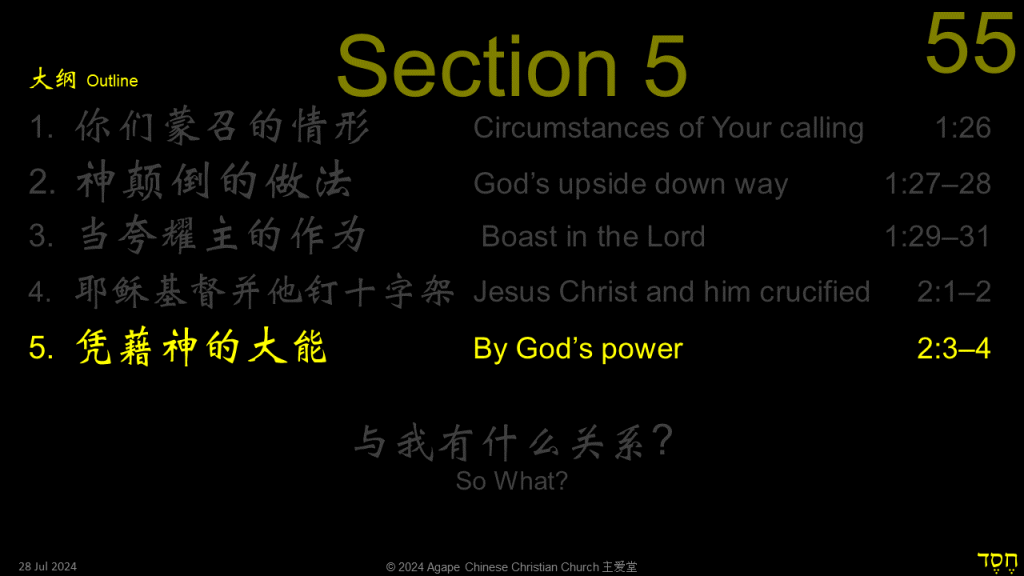
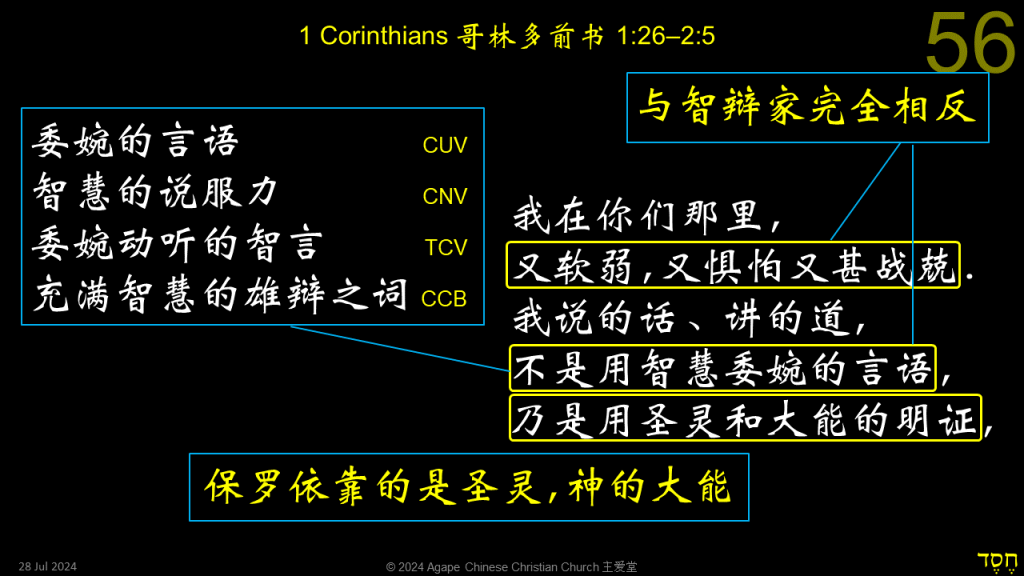
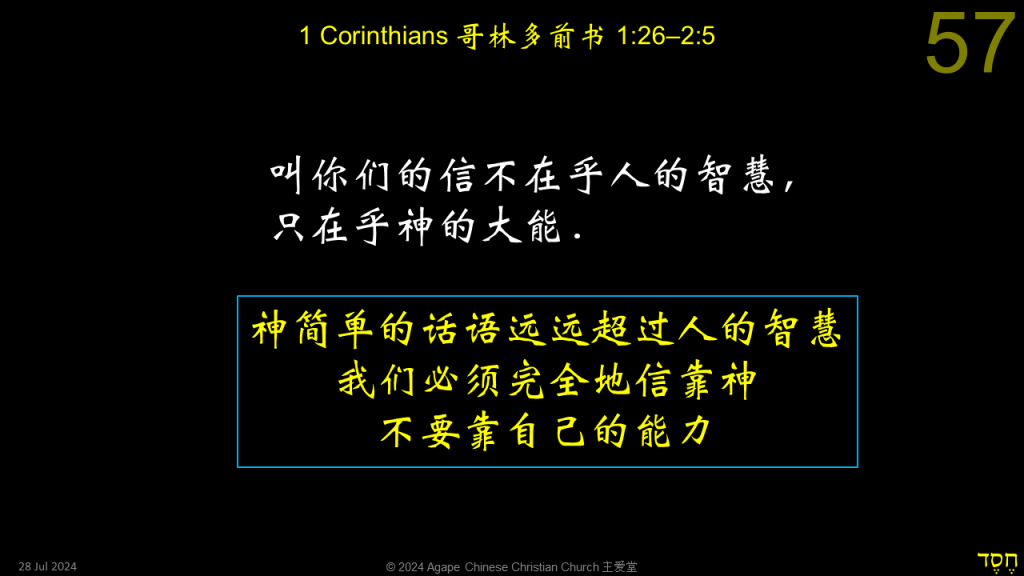
Lessons
与我有什么关系? So What?
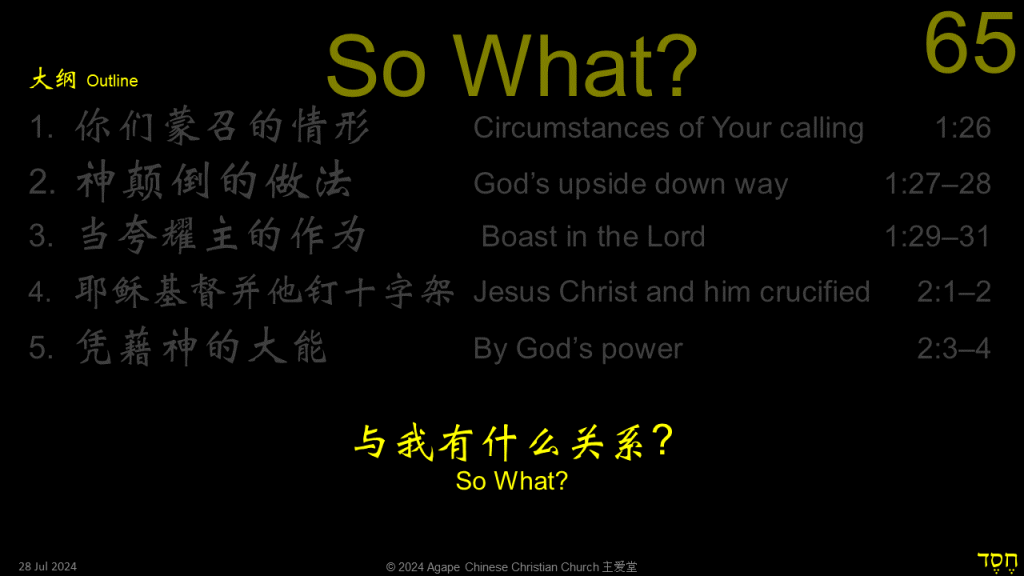
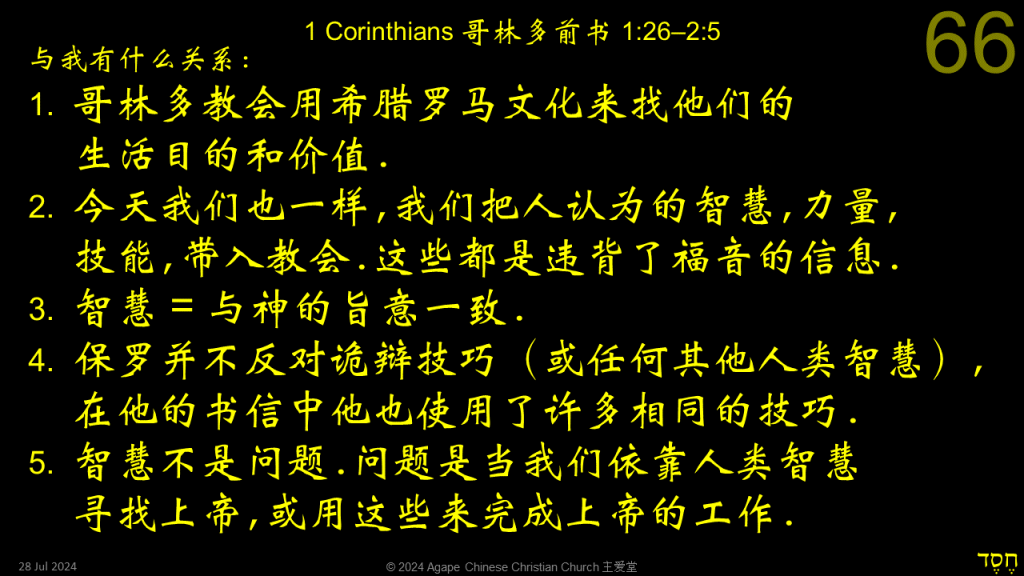
- The Corinthian church was finding purpose and value for their lives from the Corinthian cultural narrative.
- Many churches today do the same: we import what humans consider wisdom, power, skill, into the church.
All this is very much against the message of the gospel. - Wisdom = aligning with the things of God.
- Paul isn’t against sophistic techniques (or any other human wisdom),
because he uses many of the same techniques in his letters! - Wisdom isn’t the problem.
Problem is when we depend on human wisdom to find God,
or depend on human wisdom and power to do God’s work.

